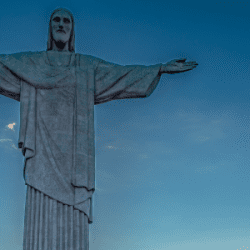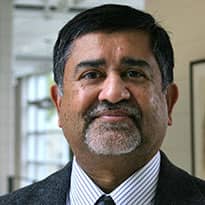It is again time to write, and writing is an act of meditation: of focusing, of devotion, of effort, and of seeking.
Why we seek—God, wisdom, ease of mind and heart—is really for the same reason, for we are human. But at what point we begin that search and where it takes us are separate stories—each one of us living in our own world of wants and desires, and some taking the time to tell us of their journeys. I mentioned Patrick Levy's journey and his book Sadhus: Going Beyond the Dreadlocks last time, and the story of his journey needs to be shared with those who have not yet chanced upon it.
When Patrick meets Ananda Baba and begins to journey through India with him, a story takes shape. And Patrick's careful questions, persistent and focused, help reveal Ananda Baba's wisdom. What makes Sadhus a book of seduction is that it is not a mere commentary on or description of the paths of seeking and revelation in India, but a story that is rich in the description of the mundane in a chaotic land, and sparkling in the brilliance of the insights unearthed. Why the story has not yet made a big public splash is not for me to fathom, but I believe that it has a rich underground following, and some young and not so young souls have been jolted into planning their life journeys through India, in search of their own Ananda Baba.
Babaji, as Patrick addresses his guru, is, in the modern sense of the term, "an unknown quantity": we do not know about his past, except that he claims his lineage to Maharishi Dayananda Saraswati, and that his guru was Vishvatma Satguru Baba, neither of whom left any monument, books, or ashrams, or any lineage, except Ananda Baba who embodied it. Fellow sadhus and knowledgeable monks bowed before him, however, acknowledging the weight and worth of Ananda Baba, a Shaiva, belonging to the Saraswati sect—one of the Dashnami sects organized by Adi Shankaracharya.
What led Patrick to Ananda Baba surely must be his previous good karma. One day, five years before he met Ananda Baba, when he was on his first visit to India and sitting with some of the babas in Varanasi, jotting down in his journalist's notebook tidbits of the lives and aims of these Hindu renunciants, he was accosted by a renunciant who ran to Patrick, touched his feet in obeisance, and said, "You are my guru. You are Shri Saraswati Prassad Bhagwan Shiv'am Baba . . . and you gave the name Balamani Baba!" His guru, the man told Patrick, had died when he was a young boy, and from the date the man gave him, it seemed that it was just before Patrick was born. Patrick, suspicious of Indian charlatans, quizzed the man, and was surprised when the man told Patrick the name of his ex-girlfriend, his mother, and his address in France. Patrick was dumbfounded, and did not want to acknowledge what the man told him. "I want to go back to France; I am a journalist; I have come to study India and its renunciants," is what Patrick thinks, but the man told him, "You will come back in five years, Guruji . . ."
Five years later, Patrick was back in India, and he found Ananda Baba. Patrick's karma, his past, has brought him to the guru who leads him further on the path of understanding his true self. Observing his guru closely, Patrick notes that ". . . he would at times close his eyelids. A luminous smile would then shape his lips and his face became smooth like a teenager. He was a blessed sight to behold and I wished that every man on earth could resemble him."
Baba's lessons are both profound and yet simple. "Don't judge or blame yourself, don't lie to yourself," he tells Patrick. "If there is no punishment, there is no lie. There is no longer a me when there is no my," he advises and Patrick feels unbound by the shackles of life, and of the past, though, "at time ghosts appeared at the crossroads of my meditation, a painful world of memories, old wounds that never healed, from the past yet still alive, elusive but stinging, which immediately bleed when evoked, humiliations, regrets, blunders . . . The kind of things that leave a trail of discontent in the mind, a bitter taste, a hopeless regret, an irrevocable shame, a dent in one's own image . . ."
This is but the story and the struggles of all of us, given our own karmas, samskaras, and vasanas. Some of us are born in India only to live out our lives and eke out our livelihoods elsewhere; some going back to the land of the yogis to fulfill promises, and to find a blessed guru who would guide us to the land of the "luminous smile." The struggle to get there could be long, and we may have to start over again, a thousand times, or for those just starting out, a million times! But who knows, if you just chance upon a copy of Sadhus you might get to take a short cut to the land of the "luminous smile"! Om tat sat! All that is the truth.
10/17/2011 4:00:00 AM





